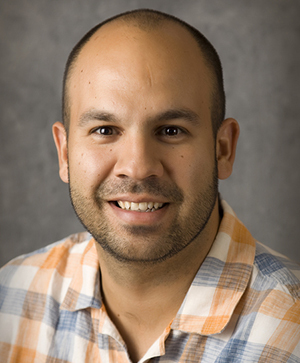 Gabriel A. Torres
Gabriel A. Torres
Conducting research in marine biology. Pursuing a graduate degree in global health. Promoting education in order to fight poverty in Uganda.
Anthropology majors in Notre Dame’s College of Arts and Letters undertake a rigorous curriculum that gets them ready for myriad opportunities after graduation—whether they enter the workforce immediately, enroll in graduate school, or choose an elite public service program.
“Anthropology at Notre Dame prepares students to tackle an array of issues concerning human diversity,” said Gabriel A. Torres, director of undergraduate studies in the Department of Anthropology. “Students learn to contextualize the human experience through evolutionary time and across the world.”
Students are encouraged to conduct fieldwork, which Torres said offers rigorous training in a host of areas—including research design, data collection, analysis, writing, and public presentations.
“Such projects allow students to gain marketable skills that can applied to many different settings,” he said.
According to the First Destination Report from Notre Dame’s Career Center, 26 percent of the anthropology majors in the Class of 2013 chose to enter the workforce immediately. Among their first positions were:
- Software developer at the University of Texas at Austin
- Practice management analyst at Axiom Law
- Research assistant at the Marine Biological Laboratory Ecosystems Center
- Teacher at the UNO Charter School Network
- Project manager at Epic Systems
Another 30 percent of the Class of 2013 began prestigious graduate programs, including:
- Law school at Emory University
- Medical school at the University of Illinois at Urbana-Champaign
- Global health program at Duke University
- Anthropology program at the University of Wisconsin-Madison
- Iberian and Latin American Studies at the University of Notre Dame
And 40 percent of the 2013 graduates chose to enter elite full-time service programs, such as:
- Alliance for Catholic Education in Jacksonville, Florida
- Nuestros Pequenos Hermanos in Miacatlan, Mexico
- Open Arms Home for Children in Komga, South Africa
- Pathways Development Initiative in Bududa, Uganda
- Teach for America in New Orleans, Louisiana
“Post-graduation service participation is more than an experience and a good deed, it is preparation for a life-long project of learning, doing, and making a difference,” said Agustín Fuentes, professor and chair of the department. “This is the motto that so many of our Anthropology majors take to heart.
“We endeavor to prepare our majors intellectually and practically to deal with a wide range of societal issues and concerns. By going out into the world of service, even if briefly, they gain additional practical and experiential insight that translates into substantive benefits—whether they come back into the academy and scholarly research, join the work force, or seek alternative venues for contributing to community, society, and beyond.”